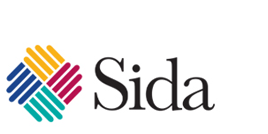Legal Framework
Gap Analysis
Urban waste-water treatment
Regulatory Planning: There is a lack of clarity in the definition of competences with regard to the identification of sensitive areas. The role of the Ministry of Tourism and Environment (MET) and the National Agency of Protected Areas (NAPA) in the identification and definition of sensitive areas needs to be clarified. In general, the Law 9115/2003 and related sub-legal acts, also the Law 111/2012 need to be better streamlined to ensure clarity of roles and functions without conflicts or overlaps.
Regulation and permitting: The technical regulation defining the design and construction of waste water treatment plants is missing.
Monitoring: The institutional set-up is not clear. Competences related to water monitoring need to be clarified. We note that the draft water package currently under discussion includes provisions intended to bring water monitoring into compliance with the Water Framework Directive (WFD), though the specifics of implementation for those provisions remain to be established.
Information and reporting: The systems for reporting and informing the public lack transparency, are fragmented and do not function regularly.
Investment planning: There is no legal basis for the adoption of technical and financial programmes for the implementation of Article 17 of the UWWTD.
Sewage sludge
Regulatory planning: Legislation presently in force does not require the development of a dedicated strategy document on sludge. This is problematic because the implementation measures to be included in related DSIPs need to have a proper legal basis in order for the DSIPs themselves to have credibility.
Regulation and permitting: The Decision of the Council of Ministers (DCM) that transposes the Sludge Directive does not define limit values for chromium in either sludge or soil.
Monitoring: There is no monitoring system in place for soil.
Information and reporting: Legislation has not yet been aligned to the requirements of Regulation (EU) 2019/1010 and the INSPIRE Directive.
Drinking water
Information and reporting: The legal framework is in compliance with the EU requirements. However there needs to be greater public awareness of drinking water problems and solutions.
Monitoring: The most recent amendments to the DWD (Directive EU/2015/1787) have not been yet transposed.
Developments in the EU
Directive (EU) 2020/2184 of the European Parliament and of the Council of 16th December 2020 on the quality of water intended for human consumption (recast) was adopted by the European Parliament and the Council of the EU on 16th December 2020 and entered into force on 12th January 2021. EU Member States have two years to transpose it into national legislation. The gap analysis report includes also a description of the key elements of this new DWD, also of proposed revisions to the UWWTD and the Sewage Sludge Directive.
Clearly these changes will affect Member States and more particularly the competent authorities in charge of waste-water collection and treatment and those responsible for energy and climate protection (national, regional and local administrations), the waste-water sector and citizens in general. We are aware that these changes will not have an immediate impact on the Albanian national legal framework. Nevertheless, we will take them into account because of their significance and potential relevance to legal transposition, to implementation planning and in particular to investment programming.














